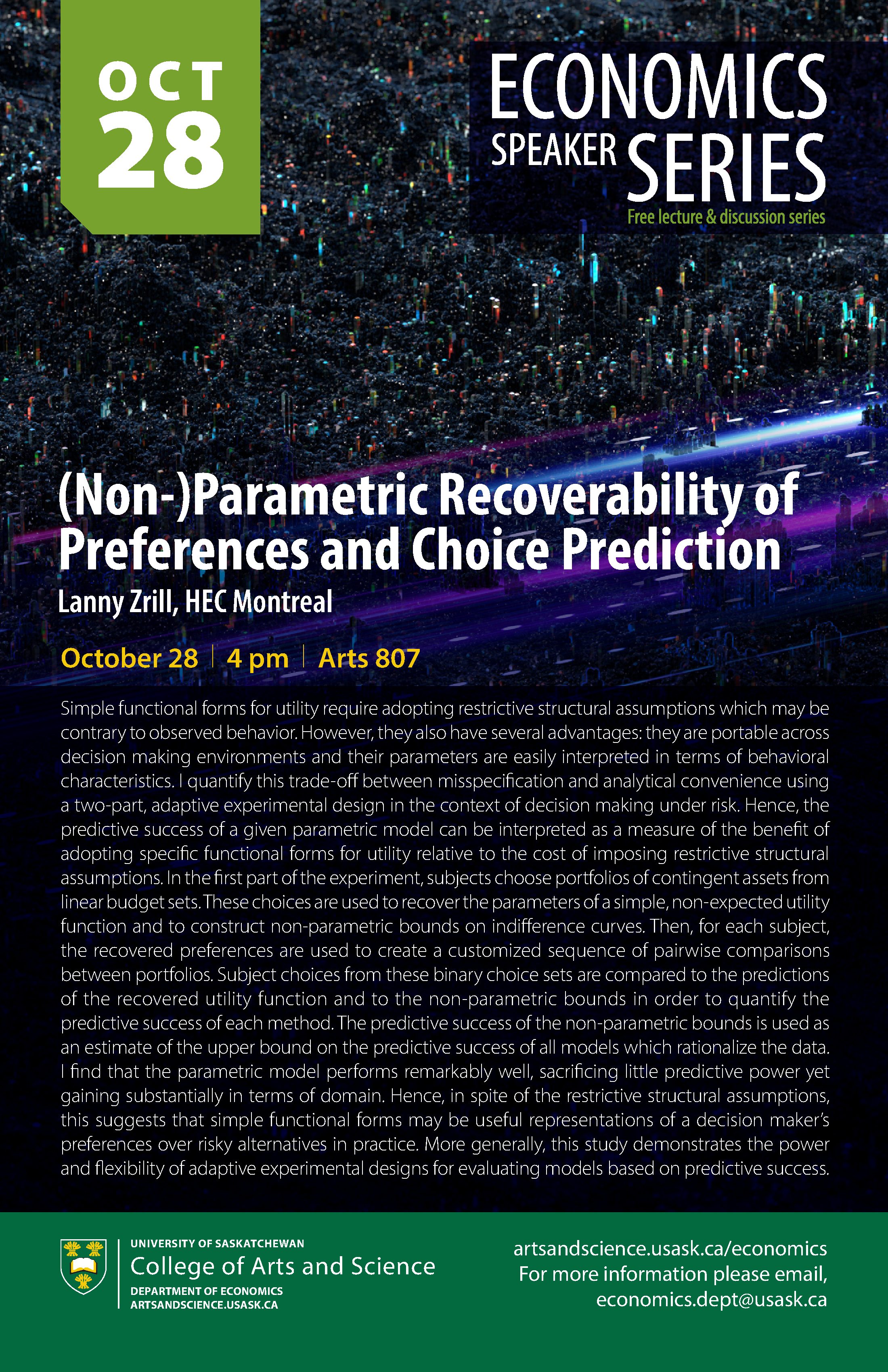
Lanny Zrill, HEC Montreal - October 28, 2019
Lanny Zrill, HEC Montreal will present a seminar at 4:00pm in Arts 807
Title: (Non-)Parametric Recoverability of Preferences and Choice Prediction
Abstract: Simple functional forms for utility require adopting restrictive structural assumptions which may be contrary to observed behavior. However, they also have several advantages: they are portable across decision making environments and their parameters are easily interpreted in terms of behavioral characteristics. I quantify this trade-off between misspecification and analytical convenience using a two-part, adaptive experimental design in the context of decision making under risk.Hence, the predictive success of a given parametric model can be interpreted as a measure of the benefit of adopting specific functional forms for utility relative to the cost of imposing restrictive structural assumptions. In the first part of the experiment, subjects choose portfolios of contingent assets from linear budget sets. These choices are used to recover the parameters of a simple, non-expected utility function and to construct non-parametric bounds on indifference curves. Then, for each subject, the recovered preferences are used to create a customized sequence of pairwise comparisons between portfolios. Subject choices from these binary choice sets are compared to the predictions of the recovered utility function and to the non-parametric bounds in order to quantify the predictive success of each method. The predictive success of the non-parametric bounds is used as an estimate of the upper bound on the predictive success of all models which rationalize the data. I find that the parametric model performs remarkably well, sacrificing little predictive power yet gaining substantially in terms of domain. Hence, in spite of the restrictive structural assumptions, this suggests that simple functional forms may be useful representations of a decision maker's preferences over risky alternatives in practice. More generally, this study demonstrates the power and flexibility of adaptive experimental designs for evaluating models based on predictive success.